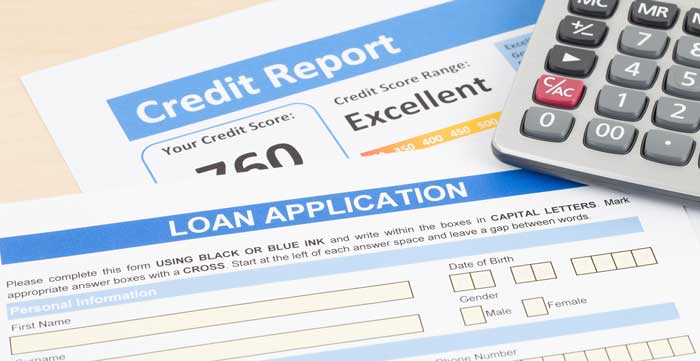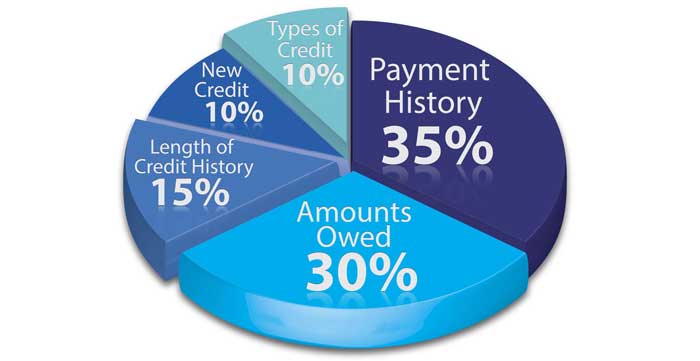
Credit makes the world go round, at least in the United States. Statista reports that in 2018, the total value of credit card transactions in the United States amounted to 3.9 trillion dollars, and the total continues to increase.
Credit can be a useful tool when used wisely, especially when you’re in a tight spot, so today we’re going to take a deep dive into how credit works. First, a credit score is a three-digit number that is usually available to you via your credit report. The score is calculated by using a mathematical formula, and you are given points for actions that indicate you have a good history in regards to credit, and you lose points for actions that show you’ve had some difficulty managing credit.
Credit score ranges vary, depending on the lender. The most common criteria for a credit score is:
- Excellent Credit: 750+
- Good Credit: 700-749
- Fair Credit: 650-699
- Poor Credit: 600-649
- Bad Credit: below 600
In addition to knowing the importance of your credit score, you should also be aware of your credit report, which holds the summary of your credit history. If you have used a credit card or taken out a personal loan, then you have what is called a credit history. Your credit report is requested whenever you apply for a credit card or borrow money.
A credit report contains information such as:
- Date of loan (or when you opened a credit account)
- The balance or how much you owe
- Whether your payments are made on time or not
- Whether you have missed any payments
- Whether you have gone over your credit limit
Your credit score is based on information gathered from your credit report. The following percentages aggregate your credit score:
- Payment History – 35%
- Total Indebtedness – 30%
- Credit History Length – 15%
- Credit Requests and New Accounts – 10%
- Credit Mix – 10%

Different businesses use your credit score to determine how risky it would be to lend you money or sell you something. Each lender has a risk tolerance level, which means they can decide the lowest credit score that will make you eligible for borrowing money. Your credit score will also be used by the lenders to establish the interest rate and credit limit on your loan.
Improving Your Credit Score
The formulas that are used for the calculation of a credit score are the private property of credit monitoring companies, therefore they are not available to the public. It means that you cannot know exactly how many points you stand to gain or lose based on the actions you take. And, the factors that are mainly used for the calculation of your credit score include: payment history, use of available credit, credit history length, number of inquiries, and types of credit.
For example, your payment history shows:
- When your bills are paid
- Payments that are missed or late
- Debts that were not paid
- If you have declared for bankruptcy
And, your score can be damaged if:
- You make late payments – the longer you take, the more your credit is adversely affected
- You have accounts that have been sent to collection agencies
- You have declared bankruptcy
- There are disputes regarding payments, and the lender declares your payments to be late
To maintain a higher credit score, you should always make your payments on time. If you have trouble paying a bill, you should immediately contact the lender to determine if it is possible to work out a special payment schedule.
Use of Available Credit
This is also known as credit utilization. To find out your available credit, add all the limits of your credit products and other loans together. If you use a large percentage of the overall available credit, then you are considered more of a risk, even if you make all of your payments on time and in full. To avoid become labeled as risky, you should try to use roughly 35% or less of your available credit.
Credit History Length
Your credit score will be lower if your credit history is relatively short (i.e. your credit accounts are very new), or you have no older accounts. To help improve your credit score, you should keep an older account open even if you do not plan on using it again, especially if the account has no annual fee.
Number of Inquiries
Each time a hard inquiry is made, meaning your credit history is pulled, your credit score is slightly reduced. Try to limit the number of times you apply for credit in a short period of time. Seek out credit only when you need to, otherwise it can adversely affect your credit score. Don’t apply for an auto loan out of general curiosity if you don’t have a serious interest in purchasing a car.
Types of Credit
If you have only one type of credit product, such as a credit card, then your score may be lower, however, if you own a mix of credit products, then you may improve your credit score. Of course, with all types of credit, you should be sure to pay back the money you borrow, or else it will damage your credit score.
Your credit score is an important part of your credit report, but it is only one aspect. The types of credit and number of inquiries can greatly affect that number, and lenders and insurance companies take it all into consideration.
